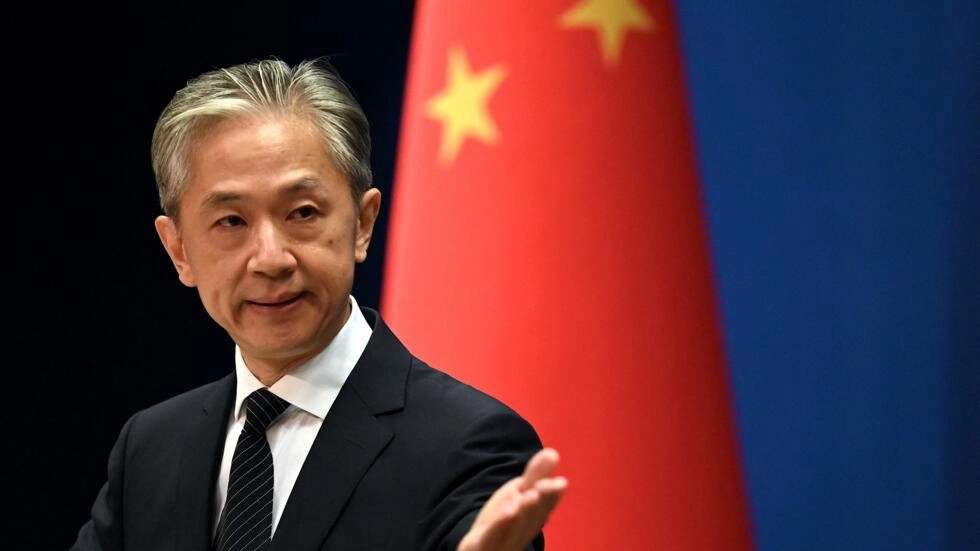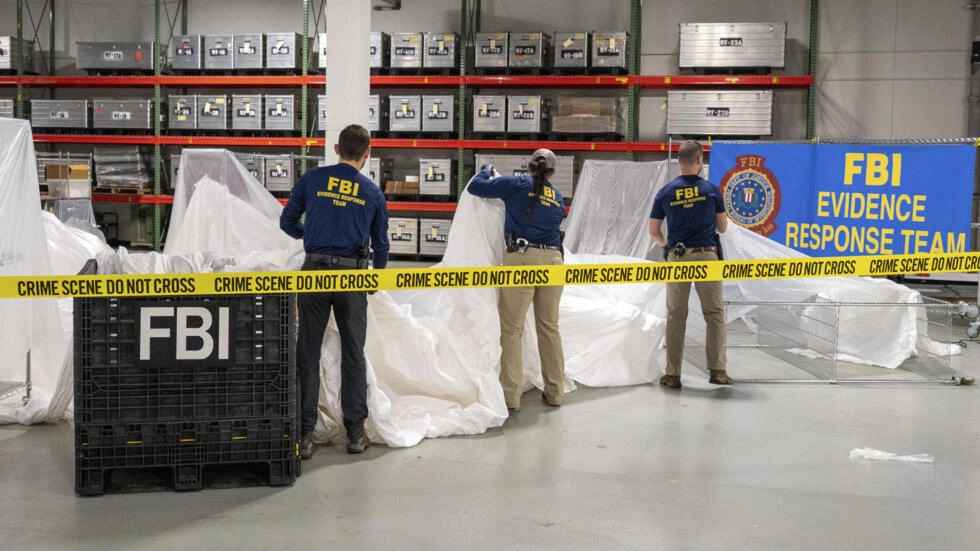German Chancellor Olaf Scholz visited Washington for talks with US President Joe Biden on Friday, with Ukraine the sole item on the agenda. This comes just over a year after Scholz’s momentous “Zeitenwende” speech in reaction to the Russian invasion, in which he vowed radical changes to Germany’s defence and security policies. But analysts say Germany is failing to meet the expectations Scholz set.
Scholz signalled a pivot in Germany’s foreign and security policy, pledging to not just meet but to surpass the NATO 2 percent defence spending target, while creating a special €100 billion fund to revamp the German military after decades of under-investment.
Scholz’s speech was a seismic moment given that he started out in politics in the 1980s as a student activist railing against the “aggressive-imperialist NATO”, before his long ascent through the ranks of the Social Democratic Party (SPD), an institution with historically close ties to Moscow.
“It was undoubtedly a huge moment for German politics – perhaps especially for the SPD and its voters. Nearly half a century of a hopeful Russia policy out the window and the shocking realisation that NATO – and Germany by extension – might find itself in danger of attack,” noted Rachel Tausendfreund, a senior fellow at the German Marshall Fund’s Berlin office.
‘Strategic decay’
There is no doubt that Germany unequivocally supports Ukraine; it is the fourth-biggest military donor after the US, Britain and Poland. But critics say the Zeitenwende has not gone far enough.
“This war is a really profound turning point in our history [and] what the government is doing doesn’t do that justice,” Friedrich Merz, leader of conservative opposition party the Christian Democrats, declared earlier this week.
Contrary to Scholz’s vow to spend “more” than 2 percent, German defence spending will be 1.4 percent of GDP this year, according to the most generous projection by defence publication Janes. That would mark an addition of less than 0.4 percent of GDP since 2015, when the German military was so under-funded it used broomsticks in place of guns during a NATO training exercise.
Indeed, two recent stories attest that the Bundeswehr is still in a bad state: It emerged in December that not a single one of Germany’s flagship Puma tanks was operational after a training exercise, shortly after German media reported that the Bundeswehr only had enough ammunition for two days of intense combat.
“They’ve capped spending at 1.4 percent for this coalition [set to last until 2025], so they’re not going to meet that 2 percent target any time soon,” noted Dan Hamilton, a former US deputy assistant secretary of state, now a senior fellow at Johns Hopkins University’s School of Advanced International Studies and a non-resident senior fellow at The Brookings Institution.
As for the €100 billion special fund, Germany’s new Defence Minister Boris Pistorius has acknowledged that more money is needed to get the Bundeswehr up to scratch. “Almost everyone says €300 billion is needed if they’re going to be serious about getting the military back in order,” Hamilton said.
“You’ve got two things working together to undermine the Zeitenwende,” added Richard Whitman, a professor of politics and international relations at the University of Kent. “One is that Scholz’s style of politics is very cautious. The other is a very embedded culture of strategic decay, in which the defence establishment seems incapable of getting to grips with the challenges posed by Russia’s war against Ukraine.
“This idea of the Zeitenwende looked like an amazing signal but it has ended up being an albatross around the neck of Germany’s leadership, because everybody can see that Germany has not delivered,” Whitman continued.
‘Hand-wringing’ over tanks
For months, battle tanks were the symbol of Germany’s inertia. Keen to develop offensive capacity, Ukraine repeatedly demanded German Leopard tanks, which are notably well-suited to break through fixed frontline defences.
Scholz’s government refused, prompting one of the fiercest acts of public diplomacy within the Western alliance since the Russian invasion, when Ukrainian Foreign Minister Dmytro Kuleba tweeted last September: “What is Berlin afraid of that Kyiv is not?”
Germany finally announced it would send Leopard tanks to Ukraine on January 25. But this came ten days after the UK became the first Western country to agree to donate tanks, announcing it would send Challengers. Scholz’s decision was also conditional on the US sending Abrams tanks – even though Washington was long reluctant to send Abrams because they require especially complex maintenance; not an easy feat for a busy Ukrainian military, hitherto used to Soviet-era tanks.
Scholz’s insistence on the Abrams precondition underscored Berlin’s caution and enduring fear of Russian retaliation without the US security umbrella.
“Germany’s partners need to understand that the Zeitenwende was never about Germany suddenly becoming a geopolitical security policy leader in Europe,” said Tausendfreund. “It was about an important shift in Germany’s security understanding – the realisation that Germany should also be able to defend its freedoms. But the Zeitenwende was not a promise of German leadership or vision.”
Nevertheless, the delay between the UK Challenger announcement and the German Leopard announcement suggests Germany is struggling to follow through with the paradigm shift Scholz implied in his famous speech. “It was quite clear what was expected, but Germany went through a prolonged period of hand-wringing and public diplomacy,” said Whitman.
‘Remarkable’ gas shift
By contrast, there was little hand-wringing when it came to gas. Reliance on inexpensive Russian supplies through the Nord Stream 1 pipeline was a pillar of German political economy, so much so that ex-chancellor Gerhard Schroeder sat on the board of Russian gas giant Gazprom.
Russian gas made up 55 percent of German gas imports in 2021 – and that fell to 26 percent by June 2022, before Russia cut off the pipeline supply in September.
Berlin acted rapidly to secure new supplies, splashing the cash on the world gas market and ordering the creation of Germany’s first liquefied natural gas terminal at Wilhelmshaven on the North Sea coast. “Energy security for the winter is guaranteed,” Scholz declared in November, the same month construction finished on the terminal in record time.
The upshot of all this is that Scholz is visiting Washington to discuss Ukraine as the leader of a country with diminished standing as a US ally compared to its European peers, according to Whitman.
“Germany’s importance has been overtaken by that of Poland, for example, which is far more important for the war in Ukraine – while the UK has [restored its standing] after Brexit thanks to its response to the war; and Ukraine itself is of course going to be key. Germany has been a longstanding US partner since the Cold War and it’s a geopolitical fact of life – but that’s not to say it’s the most significant or useful partner for US interests in Europe.”



